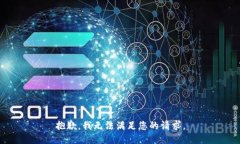引言
区块链技术自诞生以来,因其独特的去中心化特性和透明度而受到广泛关注。区块链平台作为这一技术的应用基础,正以多种形式改变着商业、金融、供应链等多个领域。本文将对区块链平台进行全面介绍,包括其基本概念、发展历程、主要优势及应用前景,并探讨相关的热门问题。
什么是区块链平台

区块链平台是一种基础设施,允许开发者在其上构建、部署和管理区块链应用程序。这些应用程序使用区块链技术来存储数据,通常是以“区块”形式链式结构存储,确保数据不可篡改、透明且安全。区块链平台不仅能用于加密货币的创建,还可以支持智能合约、去中心化应用程序(DApps)等多种应用。
区块链平台的发展历程
区块链技术的概念最初在2008年由一个化名为中本聪的人提出,随后于2009年推出了比特币,这是第一个去中心化的加密货币。随着比特币的普及,许多开发者开始探索如何在区块链上构建其他应用。2013年,以太坊的推出标志着区块链平台的一个重要转折点,因为它引入了智能合约的概念,使得开发更复杂的去中心化应用成为可能。
在随后的几年中,各种区块链平台如Hyperledger、EOS、Ripple等相继涌现,这些平台各自具有不同的特性和适用场景,推动了整个区块链行业的发展。
区块链平台的主要优势

区块链平台的优势主要包括:
- 去中心化:区块链通过去中心化的账本技术,无需第三方中介即可实现信任机制。
- 透明性:所有交易记录在区块链上公开、不可篡改,保证了信息的透明性。
- 安全性:区块链使用加密技术,确保数据在传输和存储过程中的安全性。
- 智能合约:允许自动执行合同条款,增强了商业交易的效率。
区块链平台的应用前景
区块链平台的应用前景广泛,涵盖金融、物流、医疗、政务等多个领域。例如,金融领域的去中心化金融(DeFi)正在迅速崛起,提供更便捷的借贷和交易服务;物流领域通过区块链技术追踪货物运输,增强了透明度;医疗领域则可以通过区块链安全存储患者数据,提高隐私保护。
区块链平台的相关问题
1. 区块链平台如何影响金融行业?
区块链技术正在对金融行业产生深远的影响。首先,它通过去中心化金融(DeFi)平台,允许个人和企业在没有传统银行介入的情况下进行借贷、交易和投资,从而降低了成本和提高了效率。其次,由于区块链的透明性和安全性,许多金融机构开始尝试利用区块链进行清算和结算,以提高速度和降低风险。
例如,Ripple是一个在跨境支付领域应用区块链技术的知名平台,它能够以极低的交易费用快速完成跨国汇款,显著提升了国际支付的效率。稳定币的兴起也为金融市场带来了变革,这些数字资产与传统法定货币挂钩,降低了加密资产的波动性,提供了更稳定的交易媒介。
然而,区块链在金融行业的应用也面临一些挑战,包括监管问题、技术的成熟度以及传统金融机构的抵抗等。因此,未来的发展方向将在于如何解决这些问题,实现区块链技术与传统金融体系的有效融合。
2. 区块链平台在供应链管理中的作用是什么?
供应链管理是区块链技术的另一个重要应用场景。通过在供应链上应用区块链,可以实现在各个环节间的数据共享和透明追踪,从而提升供应链的效率和安全性。
首先,区块链可以确保供应链信息的透明性,所有参与者都能够实时查看货物的流动情况,减少信息不对称带来的风险。其次,区块链的不可篡改性保证了信息的真实性,供应链上的每一个交易记录都可以追溯,帮助识别假冒商品和不合规行为。
例如,IBM和沃尔玛联合开发的食品追溯系统,利用区块链技术对食品从生产到销售的每一个环节进行记录,可以在短时间内追溯到问题食品的源头,有效应对食品安全问题。
虽然区块链在供应链管理中的应用具有巨大潜力,但实施过程中也存在挑战,如技术的实施成本、行业标准的缺乏等。企业需要与技术提供商和行业合作伙伴密切合作,共同推动技术的落地与应用。
3. 智能合约的优势与挑战是什么?
智能合约是自动执行、不可篡改的数字合约,有助于在区块链平台上实现更高效的交易。它们能够在满足预定条件时自动执行条款,消除中介的介入,节省时间和成本。
智能合约的一个主要优势在于其高效性和透明性。由于交易在区块链上自动执行,因此可以减少人为错误和操作失误。此外,智能合约的执行情况是公开透明的,所有参与方可以随时验证合约的执行过程。
然而,智能合约也面临一些挑战。首先,智能合约的编写需要专业的技术知识,增加了进入门槛。其次,智能合约一旦部署在区块链上,就无法修改,因此在合约逻辑设计时需要十分谨慎,避免程序漏洞带来财务损失。
未来的发展方向是如何提高智能合约的可编程性和安全性,使其在更多场景中发挥作用。同时,随着相关法律和监管框架的建立,智能合约也将得到更广泛的应用。
4. 区块链技术在政府管理中的应用前景如何?
区块链技术在政府管理中的应用前景广阔,可以帮助提升政府工作的透明度和效率。首先,区块链可以用于公民身份、财产登记和投票系统等方面,以确保数据的真实性和不可篡改性。比如,通过区块链技术记录土地交易信息,可以有效防止土地纠纷,确保产权的有效性。
此外,区块链可用于管理公共资金的使用情况,增强预算执行的透明度,减少腐败行为。通过在区块链上记录公共项目的资金流向,可以确保每一笔资金的使用都能够被追溯。
然而,区块链在政府管理中的应用也存在技术壁垒和社会接受度问题。很多政府机构可能对新技术的接受和应用进程缓慢,此外,公众对于隐私和数据安全的顾虑也可能影响区块链技术的推广。
在未来,政府需要与技术公司合作,加快探索利用区块链技术提升行政效率的可能性。同时,重视公众教育,提升公众对区块链技术的认识和接受。
总结
区块链平台的深入发展将继续影响各个行业,无论是金融、供应链,还是政府管理,区块链技术都展现出了巨大的潜力。随着技术的不断成熟和应用场景的拓展,区块链平台的优势将更加明显,未来的社会必将在区块链的推动下变得更加高效、安全和透明。
希望这篇文章对你了解区块链平台能有所帮助!如需进一步的讨论或具体问题,欢迎随时提问。


